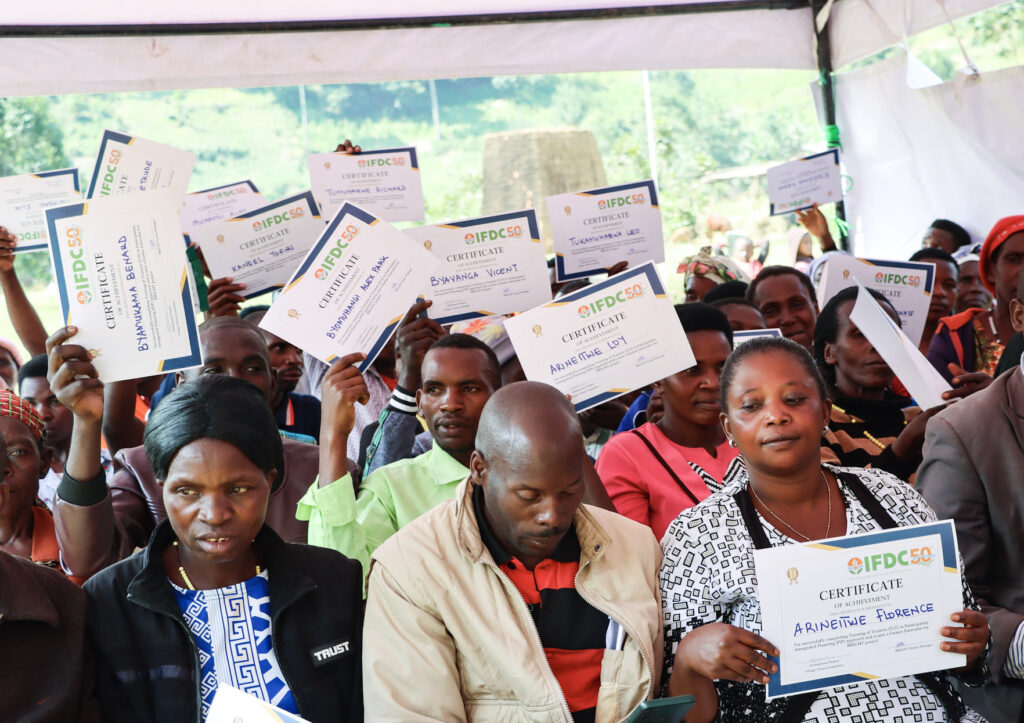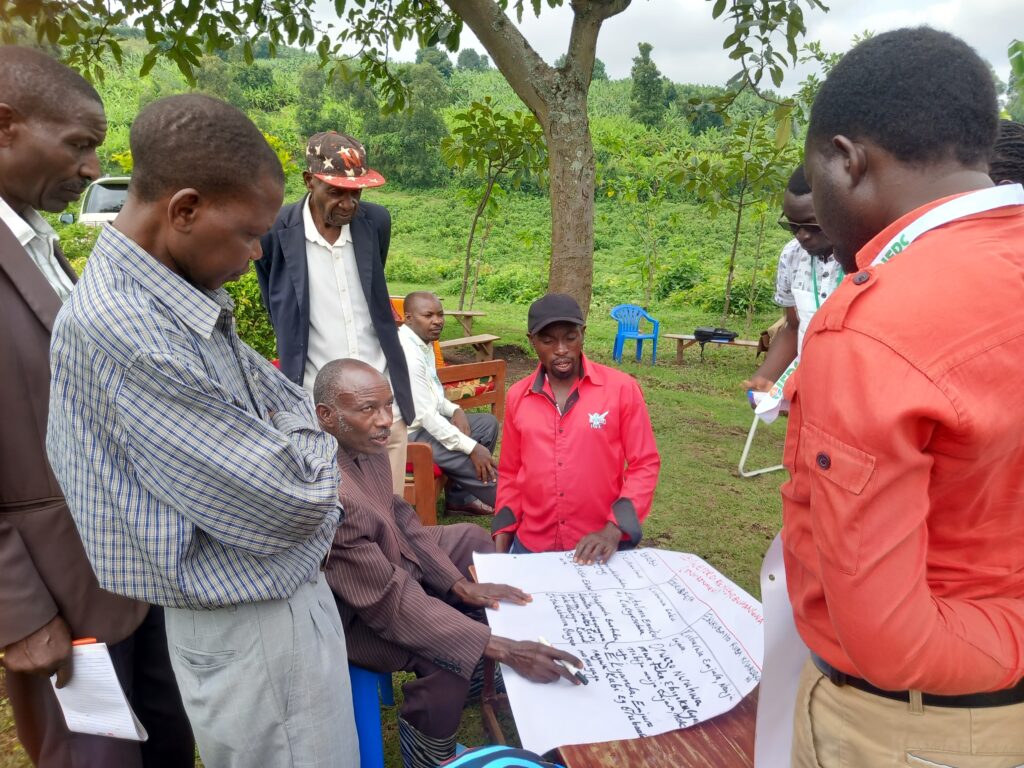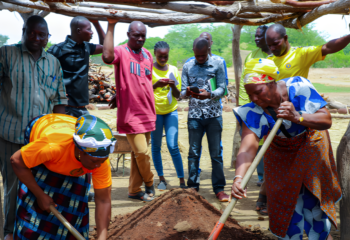
A three-month training on the Integrated Farm Planning (PIP) approach, provided by the Building Resilience and Inclusive Growth of Highland farming systems for rural Transformation (BRIGHT) project, was held in Uganda to strengthen knowledge sharing of local farmers. The PIP approach was a success, with 1,500 farmers from the Rwenzori, Mount Elgon, and Kigezi regions celebrating their graduation as Farmer Innovators. This celebration marked a momentous occasion for all participants as their achievements were acknowledged with excitement and pride.
In line with the project’s knowledge-sharing strategy, each of the 1,500 Farmer Innovators will share their newly acquired knowledge with at least 10 other farmers in their communities.
Using the PIP model, BRIGHT is driving sustainable change across farmers, households, farms, communities, and institutions. PIP fosters resilience-based stewardship, encouraging stakeholders to take responsibility by caring for land and natural resources and investing in landscape resilience.
Gamusha Fred, a graduate from Dimbwe Village in the Mount Elgon region, shared that his graduation is more than a personal achievement; it is a source of inspiration for his family.
“My certificate will motivate my children to study hard and complete their education. I had to set aside some work at home to attend the nine sessions of the training. But now, I’ve begun teaching my neighbors about proper farm management and the importance of involving household members in decision-making.”
Gamusha fred, Farmer innovator

The PIP approach also encourages each household to draw their visions and action plans. Communities are similarly trained on inclusive decision-making, developing community household visions, and integrated farm plans.
The BRIGHT project has organized communities into project villages, each consisting of at least 350 households. Using the PIP model, these households identify their social, environmental, and economic challenges and propose possible solutions.
When communities encounter challenges they cannot solve on their own, such as building bridges, IFDC connects them with local governments and other development partners to seek support.
The graduation of BRIGHT’s 1,500 Farmer Innovators not only marks a significant milestone in agricultural development but also embodies a commitment to sustainable change. Through their training in the PIP approach, these farmers are not just recipients of knowledge but active agents of transformation within their communities.
With funding from the Ministry of Foreign Affairs of the Netherlands, the BRIGHT project is enhancing the resilience of 100,000 highland farm households in Uganda against economic and climate-related shocks, supporting households through inclusive farm planning and decision-making, introducing climate-smart agriculture techniques and technologies, strengthening local farming systems, conserving natural resources, and developing strategic value chains. BRIGHT is implemented in cooperation with Agriterra, the Uganda Ministry of Agriculture, Animal Industry and Fisheries (MAAIF), the National Agricultural Research Organization (NARO), district local governments, and private sector partners.





